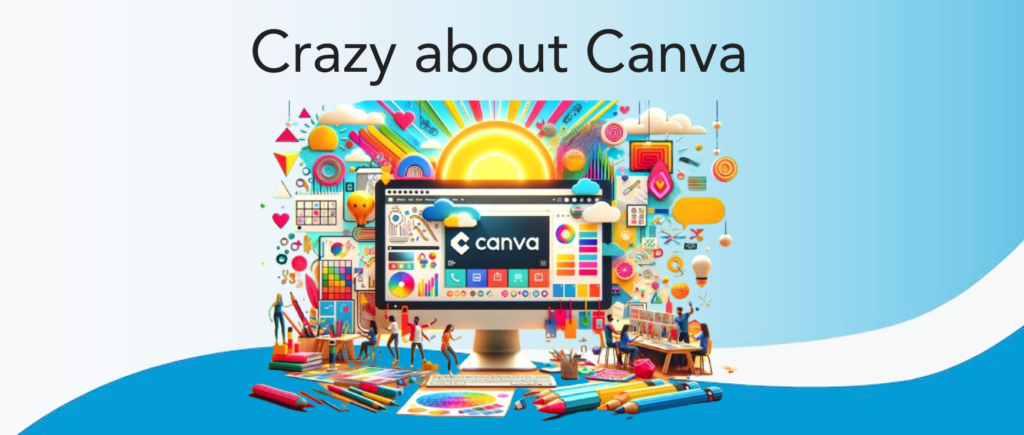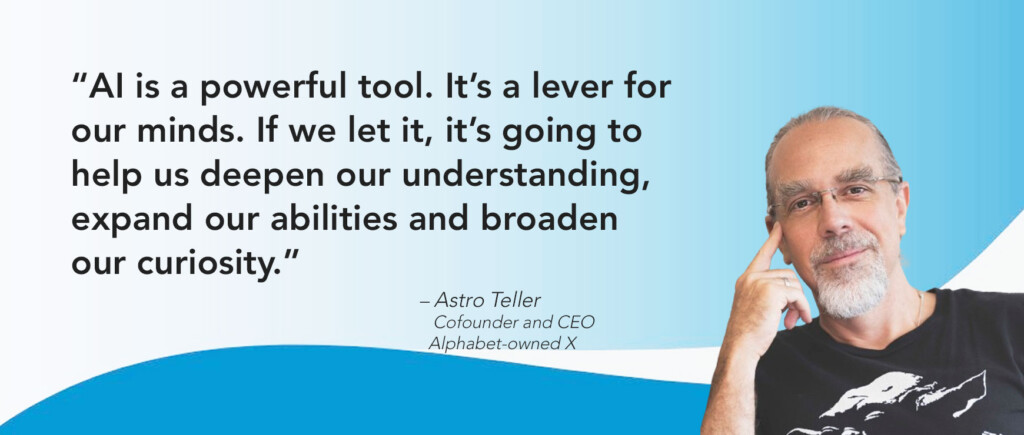By Kevin Hawkins with Korey Hawkins | Vol. 2 Post 21
Real AI is a 100% human-created weekly roundup of all things AI in real estate and emerging AI innovations in other sectors likely to impact real estate, posting weekly.
This is a brief story about the best $10 a month a real estate agent can spend on any marketing tool.
Canva was the online design tool that teachers and some real estate agents were raving about back in 2015. For teachers, their accounts were free. It was all WYSIWYG for everyone else – almost the opposite of the skills you needed to use Adobe design tools.
While art teachers may have loathed Canva at the time because it was far inferior to Adobe, for most other users back then, Canva was a lifesaver: it allowed you to create a smart-looking flyer or newsletter in minutes without artistic skills.
Registering for a Canva account that fall to see what the fuss was all about was largely unimpressive for this long-time Adobe user. Sure, it was packed with many templates, but its capabilities were highly limited.
But a few years ago, Canva began to evolve rapidly. Its popularity began to soar as it continued to add new features and capabilities. Last year, real estate’s social media guru Katie Lance chronicled the value of Canva in several posts, along with the emergence of ChatGPT as a go-to agent tool.
Katie was an early adopter of using Canva for social media posts, as Real Estate Coach Bernice Ross chronicled in a 2014 issue of her RealClues (#621) newsletter, touting its free options.
Today’s Canva keeps getting better and better, thanks to AI. It now reports 185 million active users and generates over $2 billion in annual income. Its venture into Enterprise solutions has added 95 million users in the last 18 months.
What sets Canva apart? It has been one of the earliest adopters of AI for design assistance. More importantly, it just announced an AI-first approach to its design platform.
Canva is made for AI, and AI was made for Canva. The expansion this week of its AI-powered Magic Studio is stunning. We don’t have enough space to cover all the design benefits agents can tap into, but the breadth and scope are incredible.
You can use Magic Design, which leverages AI to help you craft presentations, videos, and social posts. When resizing a photo, click a button in Resize & Magic Switch, and you are done without quality degradation. Want to try your hand at turning text into images or videos? Use Magic Media.
Remove a background, expand an image width or length without cutting and pasting, instantly grab an item in an image and move it around or resize that single image, change the color of the baseball cap someone is wearing without impacting the shadows or details, animate a still image – you get the picture? With AI, you can do more with Canva than ever before and easier than you ever imagined.
The apps are built into your workflow, making creating things like an Instagram Reel video with graphics, titles, and full-motion video clips placed inside that oval image achievable by nearly anyone.
It also has solved one of our biggest challenges. High-resolution, high-quality photos are essential companions to a news release. We have taught our clients this. However, when they have a partnership announcement, the partners need high-resolution photos but web images, or there’s not enough time to track down the better photo. But with this AI Photo Enhancer in Canva, we can instantly upscale a web image like this:
Upgrading to Canva Pro after using it on and off for nearly a decade may be the best $10 a month I have ever invested in a single tech tool. We use it in our offices every day, and we keep discovering more we can do, as cobwebs are starting to form on Photoshop, which has also added a ton of AI tools but, in this user’s view, remains eons behind Canva in user experience. (-Kevin)
Future of Everything: The Wall Street Journal held its Future of Everything Festival this week, packed with AI discussions and experts. Astro Teller, cofounder and CEO of research lab X, owned by Alphabet (Google), shared that computers can plan, write, and eventually dream or feel love (gulp), which may be unsettling. “But the flip side of that coin is, we’re gonna learn much more about the world.”
On the flip side of this coin was a more cautious Lina Khan, Federal Trade Commission Chair, who warned that artificial intelligence models that train on data from news websites, entertainment media, and social media services may be violating antitrust laws. The WSJ reports that using an artist’s or creator’s data to produce AI products that replicate their likeness could be “an unfair method of competition,” she said.
Computerworld’s headline calls Gemini “the new Google+”: Under the heading of “News Analysis,” Computerworld takes Google to task itself with its announced strategy to place Gemini everywhere. The biggest issue remains the delivery of “reliable and high quality answers,” guesstimating about a 30% error rate, noting, “But the worst part is that when they can’t complete a task confidently, they don’t give you an error or tell you they’re unable to finish. They make something up and serve you incorrect information…”
Moreover, it reports – as does Search Engine Land – the take of an ex-Google UX design veteran posting on LinkedIn that the drive for AI at Google is myopic and “is NOT something driven by a user need. It is a stone cold panic that they are getting left behind.” It concludes with something worth contemplating:
“Google and the other companies chasing this AI fantasy are desperate to have us see these systems as a life-changing leap forward, but it’s critically important for us to remain aware of the very real minuses that come with this latest shiny plus.” Amen.
Like an elephant, AI will never forget: Axios details Microsoft’s latest AI pitch with Copilot + PCs – giving Windows 11 computers total recall. If you viewed something in the past, your PC’s new photographic memory can find it, even if you don’t remember where you saw it.
This new AI-powered “Recall” feature, Microsoft consumer marketing chief Yusuf Mehdi told Axios, uses a variety of small language models running in combination, locally, on the PC itself, versus most others that run in the cloud.
Axios reported that Mehdi said, “Anything you’ve ever seen or done, you’ll now more or less be able to find.” (-Kevin)
- Nearly 1 in 3 (30%) business owners expect AI to generate website copy for their company – AI PRM
- 74% of consumers surveyed are concerned about AI being used to create deceptive political ads – NITRE
- Nearly 25% of business owners worry about AI negatively affecting website traffic – Forbes
- More than half (52%) of individuals in high-income jobs said they are familiar with AI – PWC
- Only 35% of parents surveyed have discussed AI usage with their kids – AI PRM
Source: National University (-Korey)
Zillow’s new AI tool aims to promote equality in housing | 5/21/24 HousingWire
The Fair Housing Classifier hopes to provide a chatbot that’s fair housing compliant.
(Brokerage) firms push AI announcements as Q1 losses abound | 5/17/24 The Real Deal
Brokerages are investing in AI to make up for their lost earnings.
Learning how to use AI could boost your pay by 25%, study finds | 5/21/24 CNN
It pays more today to know how to use AI.
3 Major Mistakes Companies Are Making With AI That Is Limiting Their ROI | 5/22/24 Entrepreneur
Many companies are viewing AI as a tool rather than how it can operate in a humanlike capacity.
Amazon to launch new AI-powered, conversational Alexa with monthly subscription fee: report | 5/22/24 New York Post
Amazon is doubling down on its AI support for Alexa, for a price.
(-Korey)
Subscribe to our free Real AI newsletter here.
Content suggestions welcomed: email korey@wavgroup.com.










